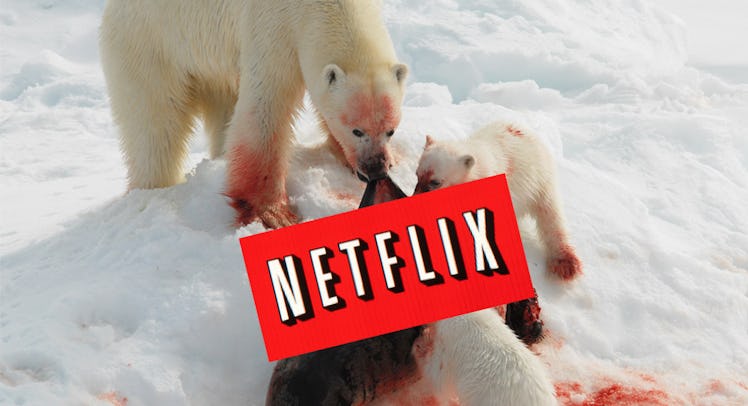Netflix Warns “Our Planet” Is Brutal. I’m Watching with My Kids Anyway
Netflix has warned animal lovers that their new documentary from David Attenborough may be too much.

On Monday my children walked out of the house to go to school and found a small dead bird in the driveway. There was nothing I could do. Death was just there, quiet and still, being a part of the natural world (as natural as a suburban driveway in Ohio can get). And that’s the way it should be, but if a recent Netflix tweet is any indication, it seems some parents would prefer to shield kids from brutal realities of nature.
The streaming service recently issued a warning for “animal lovers” so they could skip grim moments in David Attenborough’s new nature documentary series, Our Planet. The problem is that life does not come with a fast forward button. So when I watch Our Planet with my kids, I won’t be using my remote to censor the chaos of the natural world.
I completely understand the inclination. No parent wants their child to learn too early that nature is cruel and indifferent and that life must end in the inevitability of death. Childhood is supposed to be a time of innocence and happiness. The animals encountered are meant to sing songs or frolic in gorgeous habitats to the plucky accompaniment of a studio orchestra. They aren’t meant to die — unless of course, it furthers the plot. But the murder of Bambi’s mom, the fratricide of Simba’s dad, or even the death of Old Yeller are contrived, bloodless, and removed from the natural world. They are played for high drama. That’s not how nature works.
Nature is random and chaotic. In its movement, a dead bird may end up in the driveway for no reason. And as a naturalist and filmmaker, David Attenborough has shown great patience, perseverance, and skill in capturing the random and chaotic events of the natural world. He reveals them to us with stunning technical skill, making the horror stunning and beautiful.
Consider the scene in his seminal documentary Planet Earth where great white sharks were captured gobbling up sea lions in ultra-slow motion. The breaching sharks were caught floating above the sea, surrounded by a shimmer of water, a bleeding seal between their teeth. That’s Attenborough’s equivalent of dead driveway bird.
And apparently Our Planet has a lot of these moments: a flamingo chick is trapped on a salt flat, a penguin is tossed about by killer whales, and walruses plummet to their death from rocky cliffs. I watched the scenes Netflix warned about myself, and while they are sad, they are not particularly graphic. The fact is these shots depict the natural reality of our world.
Am I saying that I’ll deprive my kids of the innocent animals in kids movies, shows, and books? Of course not. But I don’t want them to be under the false impression that the world does not have teeth. It does and they are very sharp. But that doesn’t make it any less interesting, beautiful, breathtaking of edifying.
What I’m saying is that I won’t go out of my way to con my kids into thinking nature is friendly. And I certainly won’t deny them an important conversation about life and death. I will be beside them as they watch. And I’ll be ready to answer their questions openly and honestly because that’s what parenting is.
And I know they will be curious. Back in the driveway, they had plenty of questions about the dead bird. They wanted to talk about how it died and hypothesize what must have happened. They wanted to look and see how death had changed it. That’s not macabre. That’s exploration and learning. That’s life.